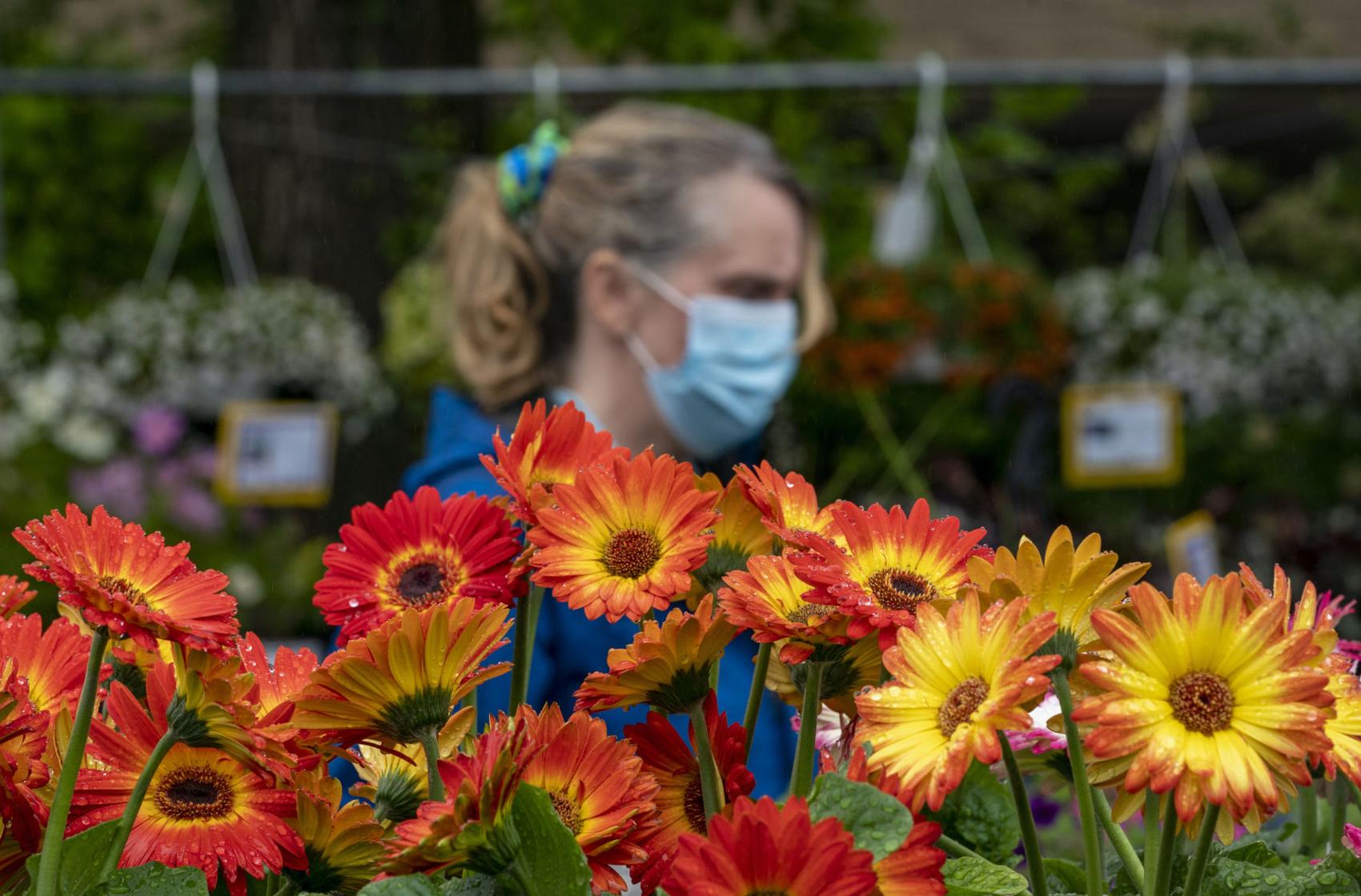Virginia finished fiscal year with lower-than-expected $236M budget deficit

Displays of brightly-hued blooms soak up the rain as Cathleen Trail of Arlington, Va., visits an outdoor shop for colorful flowers to add to her porch planters Friday, May 22, 2020, in McLean, Va., just outside Washington.
(The Center Square) – COVID-19 and the restrictions that followed took a serious toll on Virginia’s economy, which in turn led to less-than-projected tax revenue and a budget deficit of $235.5 million.
The state saw a growth rate of 2 percent compared with 2019, but it fell below initial projections of a 3.1 percent growth rate. However, the deficit is lower than the state’s budget experts predicted it would be after the COVID-19 pandemic hit.
“COVID-19 has created both a health crisis and an economic crisis, and we have to box in this virus before we can fully address its fiscal impacts,” Gov. Ralph Northam said. “While I am pleased that our revenue shortfall is less than initially expected, we know this pandemic will continue to negatively affect our state’s finances as long as this virus is with us. We must all keep taking steps to protect public health so we can continue our economic recovery and ensure the commonwealth remains on strong financial footing.”
Restaurants and bars were prohibited from providing indoor or outdoor dining for several months in Virginia. Entertainment venues and gyms were shut down, and stores had extremely reduced capacity restrictions. Most of these regulations have been lifted, but bars that do not serve food still can’t open, and restaurants and stores are required to keep people socially distanced.
The two revenue sources that took the hardest hit were payroll withholding and sales taxes, which dropped $351.5 million below initial projections. Nonwithholding income taxes mostly were at initial projection levels, and income tax refunds provided higher-than-projected state revenue by $146.3 million.
“While this is good news as it relates to the final fiscal year 2020 projected shortfall, I am concerned that payroll withholding fell 2 percent and retail sales declined by 7 percent for the months of April, May and June, contributing to a $496.5 million shortfall in the fourth quarter,” Secretary of Finance Aubrey Layne said. “We were helped by prior year income tax payments and current year payroll withholding and sales tax revenues not falling as much as initially anticipated. But the fact remains, the commonwealth has had a significant contraction in jobs, and those effects on payroll withholding and the ability for consumers to spend is an obvious concern going forward into fiscal year 2021 for the state budget.”
Stephen Haner, a senior fellow for state and local tax policy at the Thomas Jefferson Institute for Public Policy, told The Center Square the deficit was not as bad as it could have been because Northam did not shut down as much of the economy as other states did.
“Unlike many of his counterparts, Gov. Northam let several major parts of the Virginia economy continue to function, including manufacturing and construction,” Haner said. “That’s one reason the revenue shortfall turned out better than feared. The other reason, of course, is all the federal stimulus money kept Virginians able to spend. And they did.”
However, Haner said there still is uncertainty around transportation funds, universities and other government functions. Although the government bailed the state out this year, he said federal money might not be available next year to help quell the deficits.

